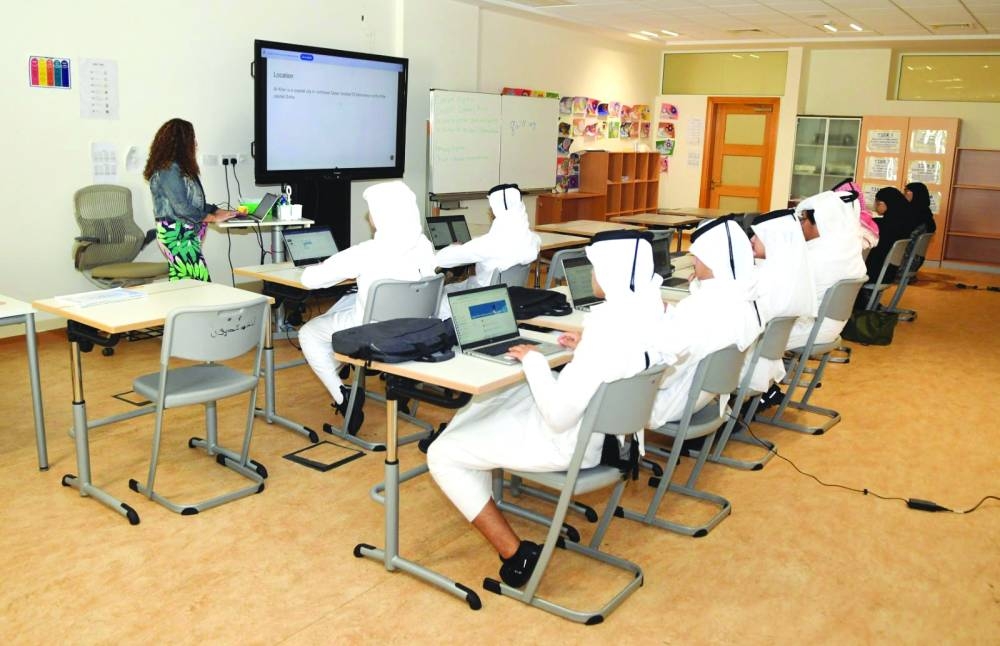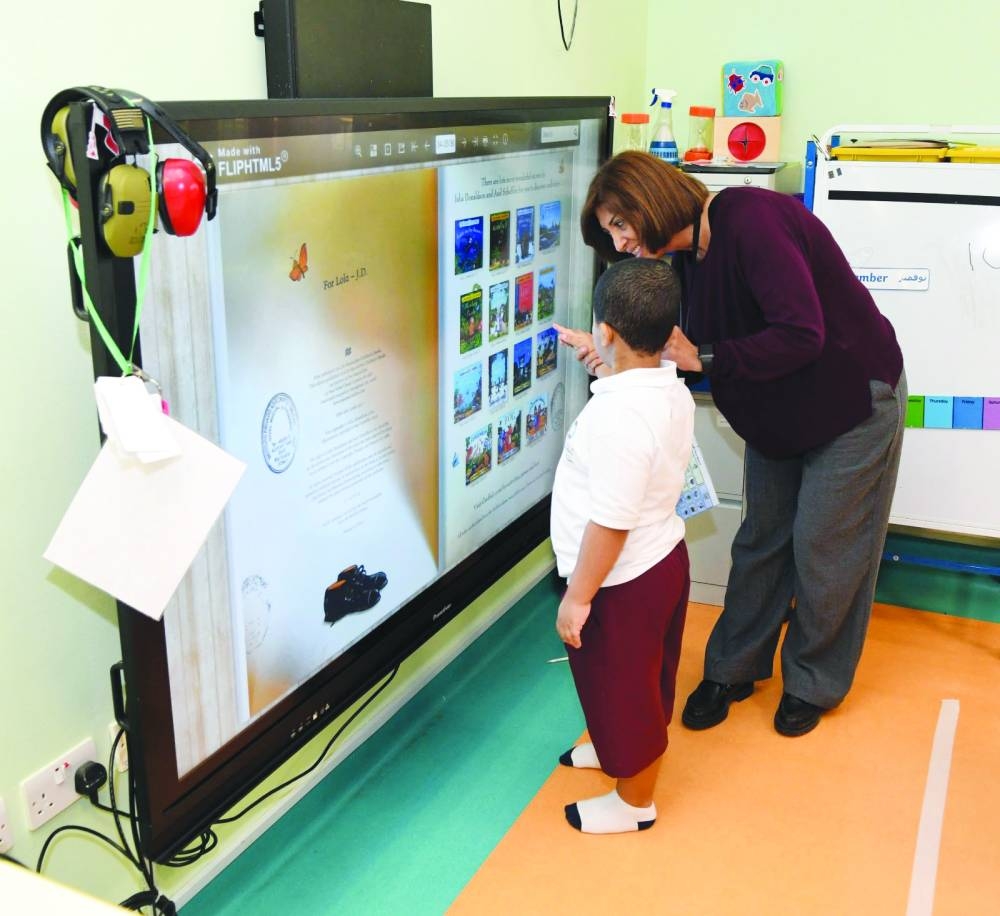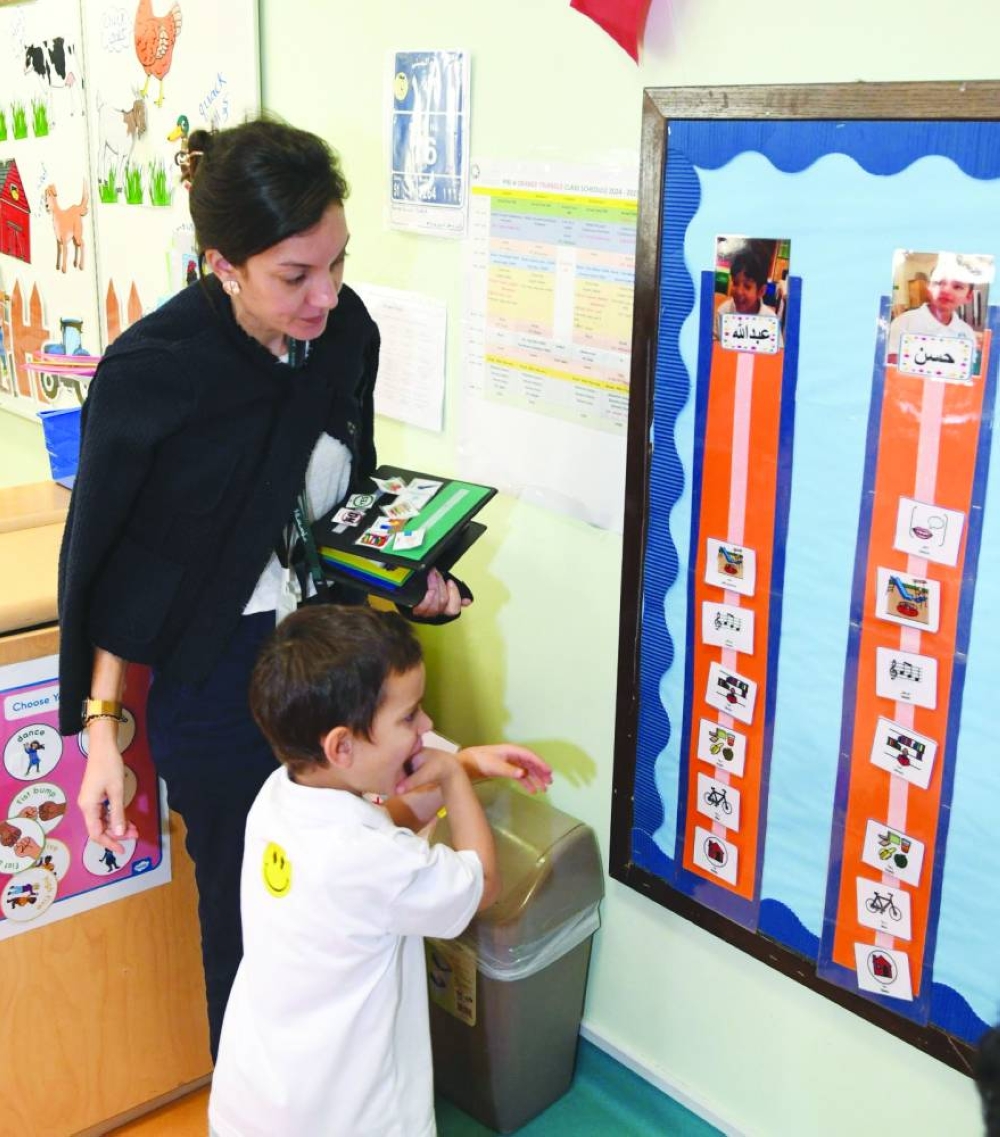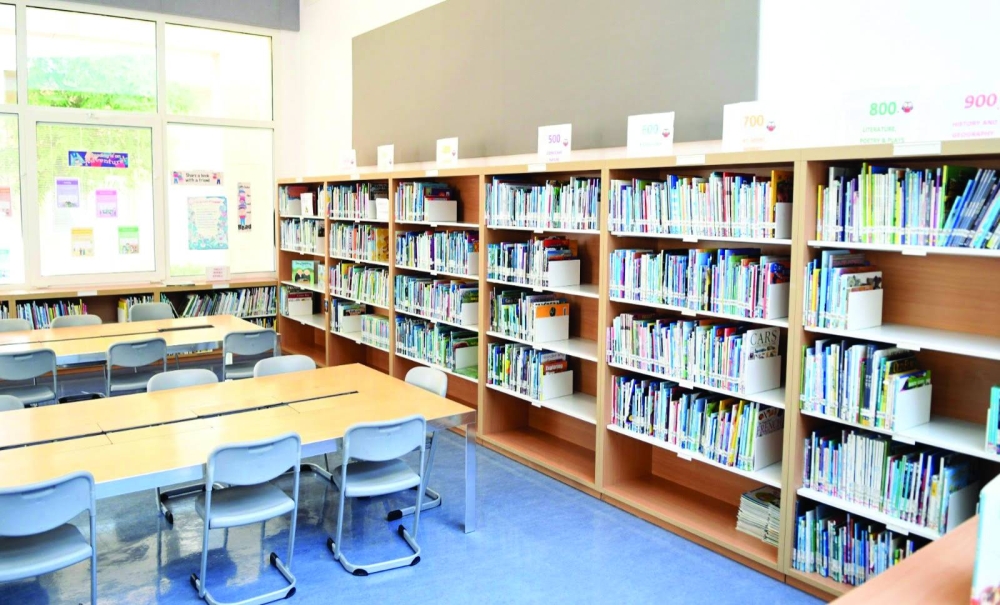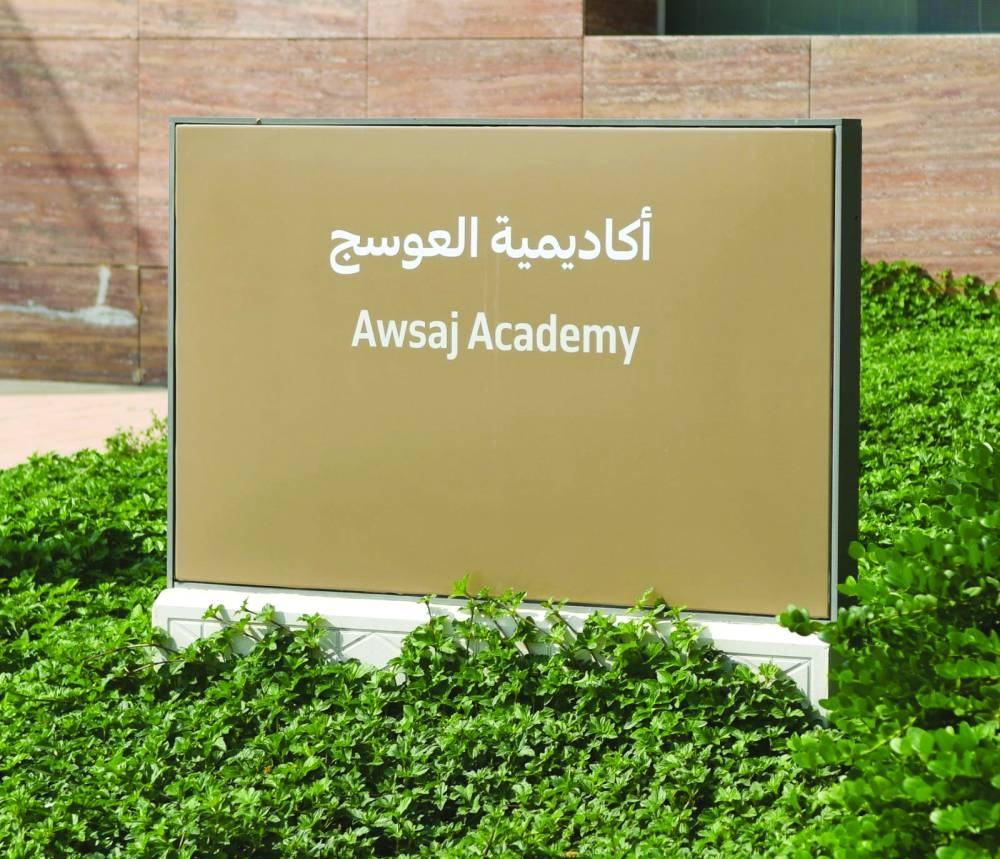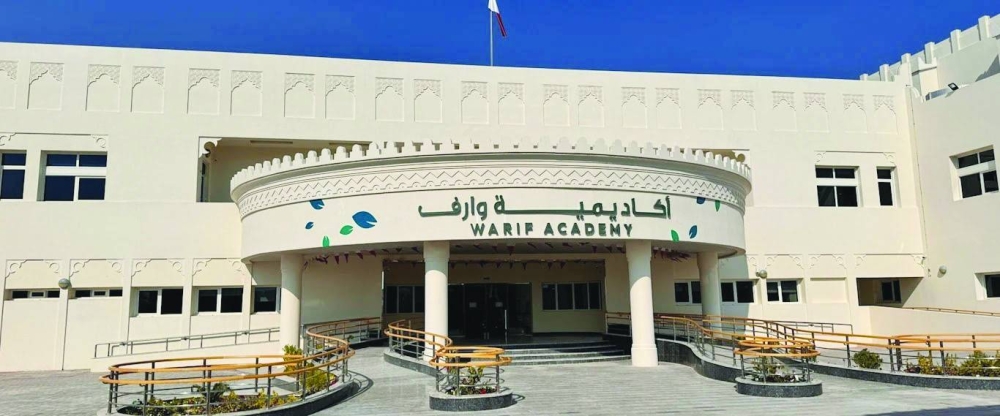As part of its strategic vision to build a more inclusive and equitable society, Qatar Foundation for Education, Science and Community Development places great emphasis on promoting inclusive education and educational integration. This ensures that all children — including those with disabilities, autism, and learning difficulties — have equal opportunities for quality education and individualised support.
Driven by a strong belief that diversity is a source of strength, Qatar Foundation works to provide flexible learning environments that respect individual differences and support student development across academic, behavioural, and social dimensions. Initiatives such as Awsaj, Renad, and Warif academies stand as living examples of Qatar Foundation’s commitment to fostering a culture of inclusion and empowering those who have historically faced barriers to equitable education—making education a bridge to empowerment and full societal integration.
Awsaj Academy: one of the region’s leading institutions specialising in serving students with learning difficulties
Mohammed al-Janahi, Elementary School Principal at Awsaj Academy (part of Qatar Foundation’s Pre-University Education), affirmed that the academy is one of the region’s leading institutions specialising in serving students with learning difficulties that may hinder their full potential in regular classroom environments.
In an exclusive statement to Gulf Times, al-Janahi explained that the academy, established nearly 20 years ago, currently serves over 600 Qatari students in its morning programme. It provides a specialised educational environment that caters to the individual needs of each student.
He emphasised that the academy focuses on empowering students who benefit from intensive support to meet academic standards through tailored teaching methods and diverse life experiences. This helps enhance their chances of pursuing academic or professional pathways alongside their peers.
Al-Janahi highlighted the importance of customised educational programmes that address students’ unique abilities and challenges while offering diverse learning opportunities through cultural events and art exhibitions that align with local and global occasions.
The academy applies a hybrid academic approach combining the American curriculum — which provides a progressive educational framework — with the Qatari Ministry of Education and Higher Education curriculum in core subjects such as Arabic, Islamic Studies, and Qatar History. This aims to strengthen students’ national and linguistic identity while ensuring fluency in both Arabic and English.
He added that the academy pays special attention to recruiting qualified educators, requiring teaching staff to hold degrees in special education and behaviour modification. The presence of skilled Qatari teachers has also proven effective in supporting this student group. Small classroom sizes — usually no more than 10 students — ensure personalised instruction and close monitoring of individual student progress.
Al-Janahi also pointed to supplementary programmes such as after-school support sessions arranged in co-ordination with parents, as well as sports and art activities that help develop students’ social and motor skills.
He noted that the academy has witnessed numerous inspiring success stories, with many students overcoming their learning challenges and enrolling in reputable colleges in various fields. The academy has also received multiple awards, reflecting the effectiveness of its educational programs and the supportive environment it provides.
Al-Janahi concluded by emphasising the need to change the stereotypical perceptions of students with learning difficulties, stressing the importance of raising public awareness of the academy’s vital role in preparing these students and integrating them into society. He affirmed that the academy constantly strives to provide an inclusive learning environment that respects differences and helps students realise their full potential—contributing to a brighter future for Qatari society.
Renad Academy: Specialised environment for children with autism
Lulwa al-Darwish, Curriculum Co-ordinator at Renad Academy, part of Qatar Foundation’s Pre-University Education, confirmed that the academy is a leading national model for the empowerment of children with autism spectrum disorder. It offers specialised academic and behavioural programmes to gradually prepare children for societal integration.
She said that the academy, founded in 2016, currently serves 140 Qatari students aged 3-14 years. It follows carefully designed individual education plans that address each child’s specific needs and abilities, helping them build essential academic, social, and life skills.
The academy uses a holistic approach that integrates academic instruction with positive behaviour strategies, sensory interventions, occupational and speech therapy, as well as mental health and overall well-being support — delivered through a scientifically grounded educational environment.
Al-Darwish stressed the academy’s strong focus on parental involvement by offering educational programs that emphasise early intervention and home support strategies. Regular meetings with families and continuous communication ensure parents remain key partners in their children’s learning journey.
She also highlighted the importance of investing in training qualified national staff in autism and special education. Building local capacities in occupational therapy, speech-language pathology, and positive behavioural support is essential for ensuring sustainability and encouraging innovation — supported by external collaborations to exchange expertise and stay updated with the field.
She concluded: “Each student challenges our creativity and expands our understanding every day. We aspire to see more Qatari educators and specialists leading and innovating in this field, grounded in a deep understanding of our culture and the needs of our children.”
Warif Academy: A global model for empowering children with disabilities
Hamad al-Obaidly, parent of a student enrolled at Warif Academy, praised the academy’s pioneering educational and developmental programmes. He shared that his daughter’s experience marked a turning point in her life after years of struggle finding a safe and supportive learning environment.
He explained that Warif Academy is the result of a strategic partnership between Qatar Foundation’s Pre-University Education and the Ministry of Education and Higher Education. It was founded to be a centre of excellence in providing educational and therapeutic services to students with severe and multiple disabilities.
“Before joining Warif Academy, we lived in constant worry,” he said. “There was no school equipped to accommodate her condition, and she struggled with communication and social engagement. This affected her confidence and interaction with her surroundings. We felt like we were in a race against time to find a glimmer of hope.”
He continued: “When we heard about Warif Academy, it was the first time we felt there was a place truly designed for children with disabilities — not just a conventional school. From the first day, we saw the difference. She began to thrive in an educational setting that understood and responded to her unique needs.
“I can honestly say the academy saved her from isolation. It gave her a sense of acceptance and belonging. Today, she is a more stable and confident child who can express herself and interact with others.”
Al-Obaidly noted that Warif Academy doesn’t only offer academic programmes but also provides integrated services in behavioural rehabilitation, life skills development, and psychosocial support. The use of modern teaching tools based on play and hands-on learning motivates children to learn in their own ways.
He concluded by emphasising that what truly sets Warif Academy apart is its human-centred approach. “The team doesn’t see children as medical cases but as individuals deserving of care, respect, and empowerment. This is reflected in how teachers interact, how activities are designed, and how the school works to integrate students into society through visits and shared events with other schools.”
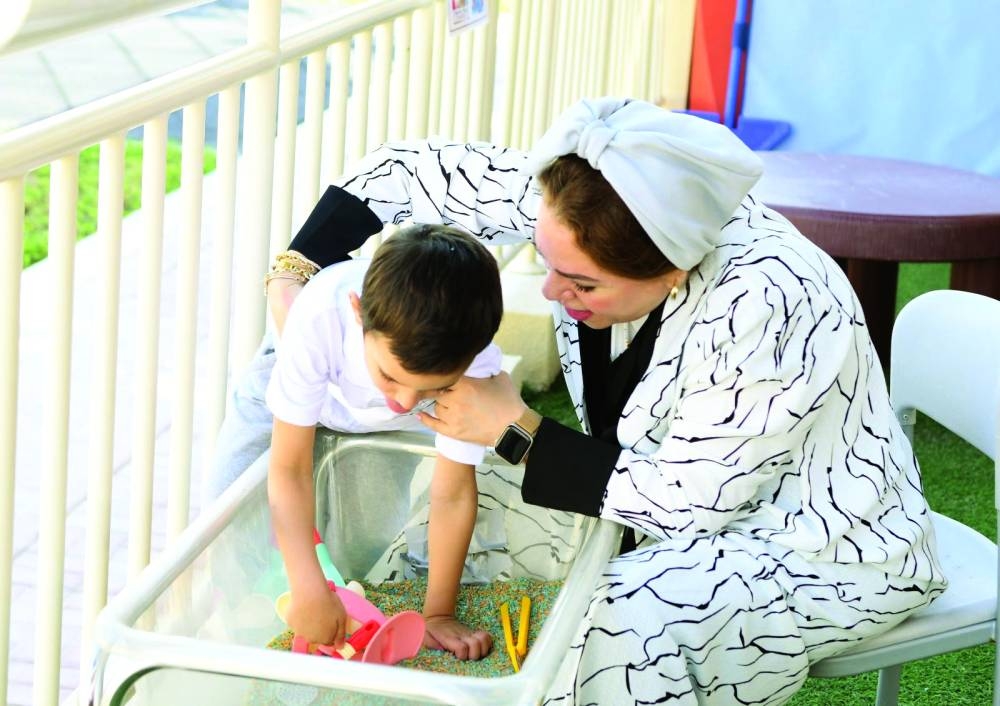
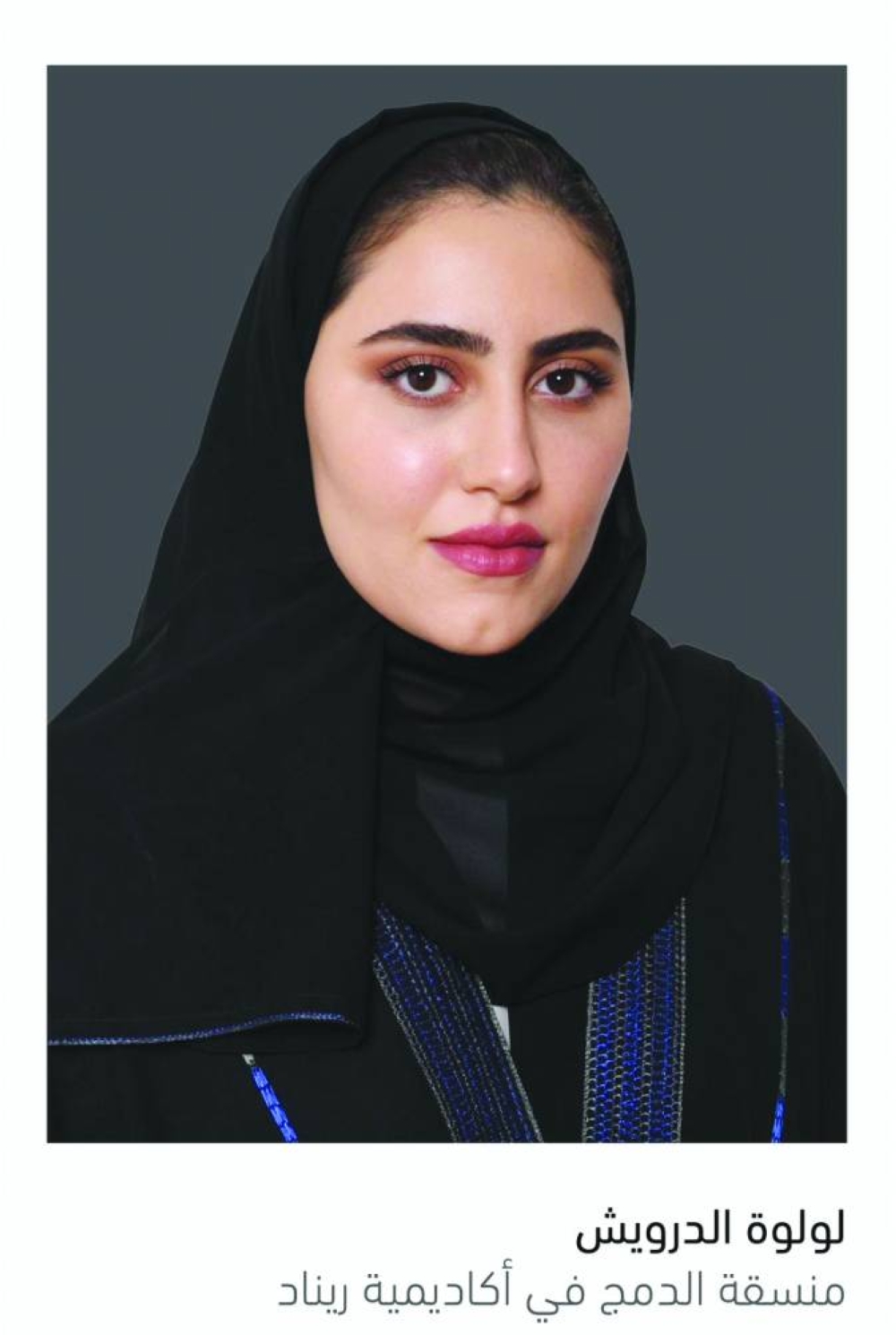
Lulwa al-Darwish
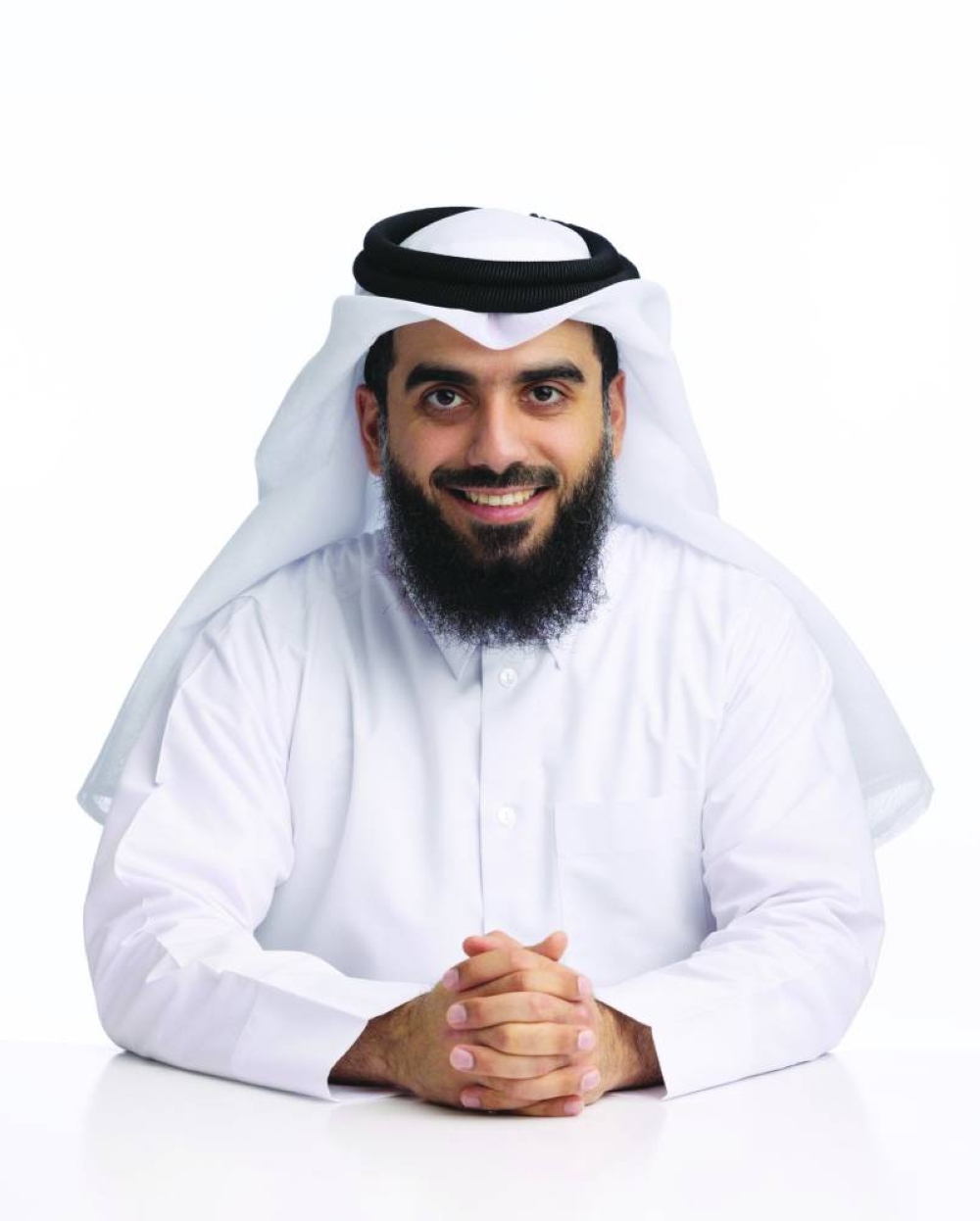
Mohammed al-Janahi
